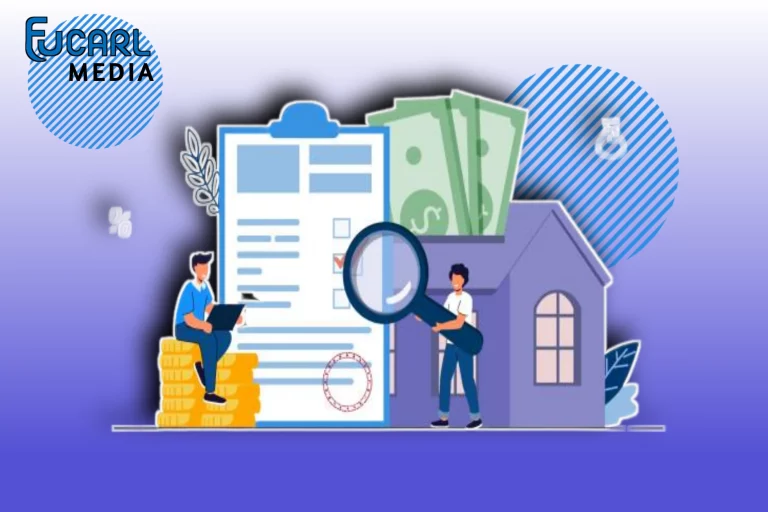Common SEO Mistakes To Avoid In 2023

In this modern era, it has become highly crucial for every business to establish a strong online presence. This could potentially open up opportunities for more potential customers to discover your business online while also enhancing its global cooperation.
Many entrepreneurs also considered it important to prioritize establishing their brand presence in the online market before thinking about strategies for showcasing their products in physical markets.
Nevertheless, the primary and most efficient approach for establishing and promoting your brand in the expansive online market is commonly referred to as an SEO (search engine optimization) strategy.
When implementing this SEO strategy, there are some SEO mistakes to avoid at all costs. If you fail to avoid these errors, it could have a detrimental impact on your brand’s online visibility and reputation.
However, by avoiding these SEO mistakes, you can positively impact your organization’s marketing strategy, as it has the potential to generate long-lasting outcomes by ensuring that your products are displayed in SERPs.
Nevertheless, this search engine optimization remains a highly effective strategy that is relatively simple to execute, yet it demands a considerable level of expertise to truly thrive.
In this blog post, we’ve pointed out the most common SEO mistakes to avoid in 2023 and the years that follow. By acknowledging these particular mistakes, you can improve your SEO strategy and make it more robust.
Let’s get the ball rolling!
What Are The Top SEO Mistakes To Avoid?
We have dedicated our time to researching and experimenting with the strategies that are about to be listed. Just stay put, and we’ll show you the correct path to take:
Mistake #1: Utilizing Incorrect Keywords

These are some of the most common SEO keyword research mistakes that people make. Therefore, to maximize your SEO endeavors, it is essential to follow the commonly acknowledged approach of developing content focused on specific keywords.
Nonetheless, it is crucial to carefully choose and focus on the most suitable keywords for your content. One of the biggest SEO mistakes for blogging is when you try to optimize for unsuitable keywords.
It is not always advisable to solely target a keyword based on its high search volume. However, it is important to always be mindful of the level of difficulty associated with the “keyword.”
In order to guarantee that your web and textual content attains a top position on the search engine results page with fewer SEO technical issues, it is crucial to optimize it using the right selection of keywords.
Here are a few examples of keywords phrases that you should avoid targeting:
1. Generic Keywords
This refers to the particular set of keywords used to attract individuals to your website, even if they may not necessarily be part of your intended target audience or customer base.
These keywords are used with the main goal of boosting website traffic and click-through rate (CTR), but they might not effectively engage or convert visitors into real customers.
2. Board Keywords
Board keywords refer to a particular group of search terms that face intense competition and present challenges in attaining top rankings. In order to achieve a high ranking for these types of keywords, a substantial number of high-quality backlinks will be necessary.
3. Global Keywords
Global keywords are specific keywords phrases or words that are intended to target a broad range of regions worldwide, even if your services are only accessible locally.
The selection of these keywords is strategically made to appeal to a worldwide audience, even though your business has a limited geographical reach. Therefore, these SEO mistakes for blogging should never be avoided.
4. Less-value Keywords
Less-value keywords refer to particular search terms or phrases that might attract individuals who are primarily looking for free and a little information instead of potential customers who are truly interested in making a purchase.
Therefore, the aforementioned keywords are among the common SEO mistakes to avoid. Instead of exclusively focusing on these keyword examples, give priority to generating highly specific long-term keywords.
Mistake #2: Prioritizing Quantity Over Quality
This is one of the top SEO mistakes for blogging that we noticed that users do practice. The current focus and preference of Google are gradually shifting towards giving more importance to the quality of content than quantity.
Creating a solitary, skillfully crafted, and thoroughly structured blog post that truly adds value to your readers carries considerably greater importance for SEO objectives than quickly churning out ten poorly written articles of low quality.
Certainly, placing an emphasis on quality rather than quantity has become a fundamental principle of an effective SEO strategy in recent times, as it is also a typical SEO mistake that experts strive to avoid.
However, in the current digital marketing, the crucial factor in attaining a high ranking on Google is undoubtedly to firmly establish yourself as the most outstanding and pertinent result. This will encourage search engines to promote your articles.
Achieving these ultimate outcomes is highly unlikely if the post is poorly written, haphazard, or excessively brief, regardless of how well you execute other aspects of SEO within that particular content.
Mistake #3: Under-optimized Meta Tags

Meta tags are useful in identifying the nature of the content found on your webpage. However, if these tags are not present, it may result in certain SEO technical issues that could have a detrimental effect on your website.
There are a few important meta tags that have a significant impact on optimizing a webpage, and we’ve chosen to discuss their details and importance below:
The Meta Title
It is advisable to optimize your meta title using the recommended format to enhance your search engine rankings, increase website click-through rates, and minimize your website bounce rate.
If we don’t optimize the title tag, Google might automatically fetch the tag from the content and potentially lower the ranking of your webpage. Therefore, these SEO mistakes for blogging should always be avoided.
Nevertheless, a well-optimized meta title that does not have any form of SEO keyword research mistakes will always contain the focus keyword in its title tag so as to attract more audience members to click on it.
The Meta Description
The Meta description tags serve as a brief overview of the content discovered on a webpage, much like the title tag. A summary of a blog post can assist users in getting a general idea of its content prior to clicking on it.
Moreover, it carries considerable significance as it plays a vital role in improving click-through rates. That is, a captivating and informative description will attract more clicks, whereas a poor description will result in fewer clicks.
Meta Header Tags
The meta header tags have an important role in informing search engines about the different sections of your written content or web documents, making them a vital component of meta tags.
Consequently, by integrating your focus keywords into your headings, you not only increase their importance but also enhance the likelihood of outranking your competitors on the search engine result page.
There are a total of six heading tags, (such as H1, H2, H3, and H6). However, one of the most common SEO mistakes to avoid is by leaving the tags blank. Therefore, it is advisable to always create them using the correct keywords.
PRO tips: You can learn more about meta tags through this content: “Metadata Meaning: Discover How It Helps SEO.”
Mistake #4: The SEO Mistakes Of Slow Site’s Speed
A speedy website is universally loved, and this sentiment holds especially true for Google and other search engines. The more rapid your website is, the greater the likelihood that Google will include it in its index easily.
A website that operates at a reduced speed is more likely to encounter a decrease in its search engine rankings. However, if you are aware of any speed issues on your site, it would be wise to prioritize improving the speed for SEO purposes.
This principle can also be applied to the installation of WordPress plugins. As a WordPress website user, it is strongly advised to assess the plugins that are presently enabled on your site with regard to their impact on loading speed.
Some common SEO mistakes to avoid is the tendency to activate numerous plugins. If you fail to utilize them, it could potentially have a negative impact on the speed and performance of your website.
Therefore, it is advisable to take some time to review and eliminate any unnecessary plugins that are not currently needed. If there happen to be no plugins that can be removed, maybe you could think about substituting a few of your current plugins with a single plugin that performs multiple functions.
Mistake #5: Inadequate Utilization Of SEO Tools

At present, there is a division among website owners and webmasters, with some being overly focused on using different SEO tools while others choose not to use any tools at all.
Using too many SEO tools can potentially overwhelm a website, resulting in a gradual decrease in its performance. Therefore, it is crucial to steer clear of these specific SEO mistakes for blogging under any circumstances.
Nevertheless, there are cases where individuals who are inexperienced in marketing may lack familiarity with Google Analytics. In such instances, it becomes essential to convince them to make use of this tool, as it includes other software components.
It is quite impressive to see the numerous valuable features that EucarlMedia, in collaboration with SiteManagerTools, provides at no cost. These include the Keyword Suggestion Tool, the Page Speed Checker, and many others.
Mistake #6: Failing To Meet Search Intent
Search intent is often known as the driving force behind a user’s search in Google SERPs. Having a blog post with poor search intent should be one of your top SEO mistakes to avoid if you wish to improve your rankings.
So, how exactly does search intent play a role in preventing SEO technical issues?
People use the internet to find information or resources. They hold the anticipation that they can find the desired result or solution by using the Google search button.
If your webpage manages to appear in the search results but fails to offer a solution to the users’ problem, they will quickly leave your site. This unfortunate occurrence is commonly known as a “bounce”.
Google and other search engines may infer from your bounce rate that users might not be discovering the desired information on your website, potentially leading to a decrease in your organic traffic.
If you continue to postpone resolving the issue that is causing the noticeable bounce rate due to your content’s lack of search intent, your position on the search engine results pages will continue to decline.
Mistake #7: Problems With SSL Certificates
SSL, also known as “Secure Sockets Layer,” is a commonly used cryptographic protocol that guarantees secure communication between a client and a server in the online realm.
SSL certificates play an important role in preventing certain SEO keyword research mistakes that might arise during the transmission of data between website owners, webmasters, and users.
By incorporating Secure Sockets Layer (SSL) certificates, both parties can feel at ease as their sensitive information is safeguarded against unauthorized access and potential cyber threats.
After successfully implementing the SSL certificate on your website, it is important to verify its proper functionality. Therefore, it is important to always keep the SSL certificate in mind when considering the list of top SEO mistakes to avoid.
Lastly, it is important to make sure that it is easily accessible on every single page of your website. It becomes problematic when the SSL certificate is not correctly implemented on the homepage of the website.
Mistake #8: Neglecting To Optimize The Category And Tag Archive Pages

Another biggest SEO mistakes to avoid in Google AdSense is not optimizing your category and tag archive pages. When fully optimized, these pages have the potential to significantly improve your blog and attract potential customers.
Even for highly competitive search terms, the tag archive pages have a tendency to link your blog post to the queries of your audience. Nevertheless, in the event that these pages are not properly optimized, they may have a detrimental effect on your overall SEO performance.
It would be beneficial for you to explore and gain further knowledge about the significance of these tags, as they can greatly assist with SEO. These tags also provide search engine bots with an indication that your site is appropriately organized for visitors.
Conclusion Of The Top SEO Mistakes To Avoid In Digital Marketing
If you haven’t given much priority to SEO until now, there’s no need to worry; you still have plenty of time to catch up! We suggest starting with our comprehensive guide called “Beginners Guide To SEO” for a good starting point.
This guide aims to offer you a strong grasp of the basic principles and concepts of search engine optimization, along with some common SEO keyword research mistakes that you need to know about.
We also suggest enhancing your reading experience by enrolling in one of these 13 free SEO courses for Beginners. This will also help you identify common SEO technical issues to be aware of. By the end of your enrollment, you will also receive a certificate.
Please make sure to subscribe to our newsletter by clicking on the “subscription button”, as we will regularly offer you valuable insights on SEO best practices to outperform your competitors.
Please ensure that you leave any potential questions you may have about this article in the comment section. We will promptly offer a comprehensive response to your inquiries!






